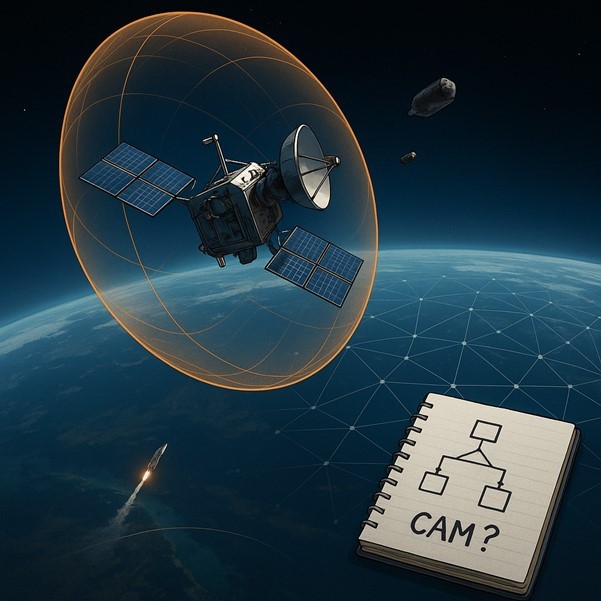GMV leads the charge in Collision Risk Awareness with new ESA project TELCOLA

The European Space Agency (ESA) has awarded GMV the leadership of a pioneering project that promises to reshape how collision risks are assessed for satellites. The project, named TELCOLA (Debris Impact Assessment to Improve Collision Avoidance Metric for Telecommunication Spacecraft), officially kicked off in January 2025.
With the rapid expansion of mega constellations and the growing complexity of orbital traffic, satellite operators face unprecedented challenges. TELCOLA addresses these by developing a new generation of collision avoidance metrics tailored to the unique dynamics of satellites, particularly in scenarios characterized by high orbital uncertainty and potentially severe collision consequences.
The TELCOLA initiative aims to go beyond traditional probability-based assessments. It will tackle challenging scenarios involving high uncertainty, such as early-orbit phases of newly launched satellites, after large manoeuvres during orbit raising or end-of-life operations, and events involving objects with poorly known orbits. In parallel, TELCOLA will explore and define consequence metrics, capturing the broader implications of a potential collision. These metrics will include the economic impact—such as asset replacement costs, service disruptions, and reputational damage—and environmental consequences, particularly the long-term sustainability of orbital regimes due to debris generation. Integrating these considerations will help assess the criticality of potential events and support more comprehensive collision avoidance decision-making.
The project will begin with a comprehensive literature review and the creation of pre-prototypes to evaluate various approaches to both collision and consequence metrics. This will be followed by a survey campaign targeting SATCOM operators to gather user insights. The findings will inform the development of a prototype software tool, incorporating evolved collision metrics and consequence metrics. A key feature of the prototype will be a decision tree-based logic designed to support satellite operators in determining whether and when to execute Collision Avoidance Manoeuvres (CAMs)..
The project is led by GMV, in collaboration with the Politecnico di Milano (Italy). GMV brings to the table its robust experience in operational space safety services and its leadership in software solutions for collision risk management.
Funded by the European Space Agency, TELCOLA will also perform extensive validation using real-world datasets, and simulation campaigns. The final outcome: a validated decision support system ready to be integrated into operator workflows and potentially revolutionize collision avoidance practices for telecom platforms and beyond.
This project reinforces GMV’s commitment to Space Situational Awareness (SSA), Space Traffic Management (STM), and Sustainable Space Operations, ensuring that as the skies grow busier, safety remains a priority.